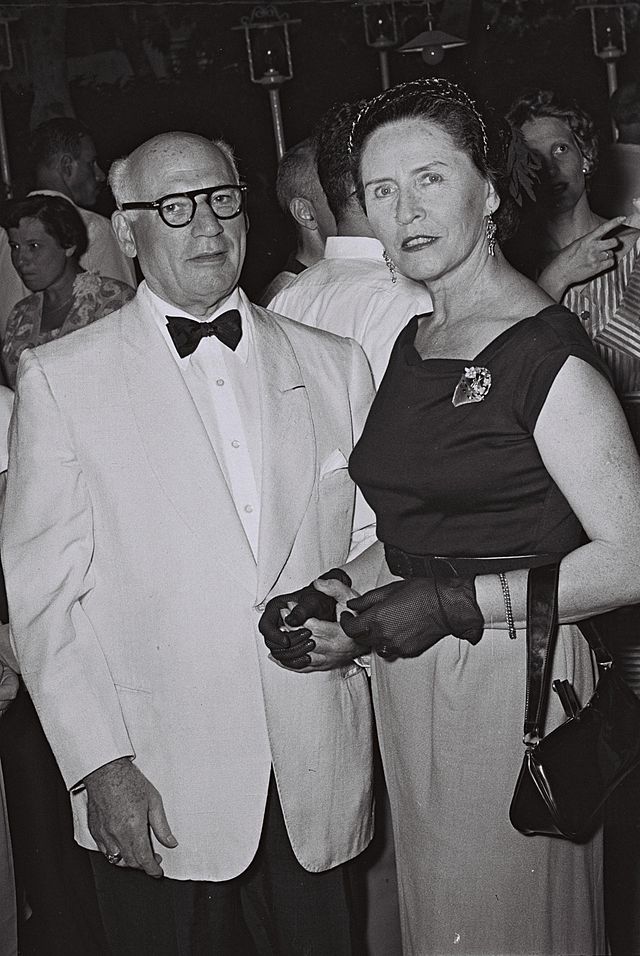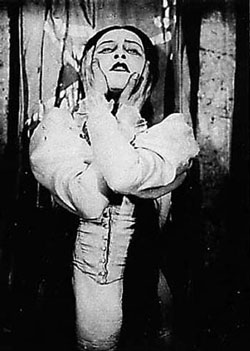Top Qs
Timeline
Chat
Perspective
Hanna Rovina
Israeli actress From Wikipedia, the free encyclopedia
Remove ads
Hanna Rovina (Hebrew: חנה רובינא; 15 September 1888[1] – 3 February 1980), also Robina, was an Israeli actress. She is often referred to as the "First Lady of Hebrew Theatre".[2]

Remove ads
Biography
Hana Rovina was born in Byerazino, in the Igumensky Uyezd of the Minsk Governorate of the Russian Empire (present-day Belarus),[3] to David Rubin, a timber merchant and Sarah-Rivka Rubin. She had one sister, Rahel and one brother, Zvi. She trained as a kindergarten teacher at a course for Hebrew-speaking kindergarten teachers in Warsaw (prior to the First World War).[4]
She had a daughter, Ilana, born in 1934, with the Hebrew poet Alexander Penn.[5]
Remove ads
Acting career
Summarize
Perspective
She began her acting career at the "Hebrew Stage Theatre" of Nahum Tzemach.[6] She joined Habima Theatre in 1917 just as it was being launched, and participated in its first production, a play by Yevgeny Vakhtangov. She became famous for her role as Leah'le, the young bride who is possessed by a demon in The Dybbuk by S. Ansky.[7]
In 1928, Rovina and the other actors of Habima immigrated to Mandate Palestine. Habima became the flagship of the new national theatre movement, and Rovina was recognized as the movement's leading actress.[8] The image of Rovina in her role as Leah in the Moscow performance of The Dybbuk, in a white dress, with her long black braid, became an icon of the emergent Hebrew theatre.[9][10]

Rovina took her acting very seriously and tried to live the life of the character, as prescribed by the Stanislavski School.
Nisim Aloni wrote a play, Aunt Liza, especially for her and Rovina played the lead.[11]
Rovina made high demands of her audience. She frequently stopped a play in the middle if she felt that the audience was not attentive enough. In one instance, she stopped the play Hannah Senesh in the middle of a scene and told the teenagers in the hall to stop eating sunflower seeds. [citation needed]
Remove ads
Awards and recognition
Rovina was awarded the Israel Prize for theatre in 1956.[9][12] She remained active on stage until her death, in 1980.[13] She died in Ra'anana, aged 91.
Gallery
- Hanna Rovina
- Rovina's room in Habima theatre, Tel Aviv
- Hanna Rovina in Mirele Efros costume by Yitzhak Frenkel
See also
References
Wikiwand - on
Seamless Wikipedia browsing. On steroids.
Remove ads




